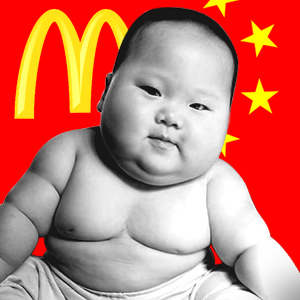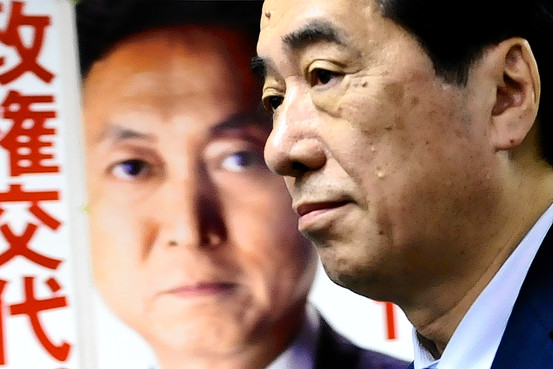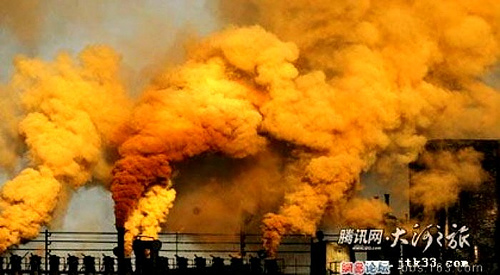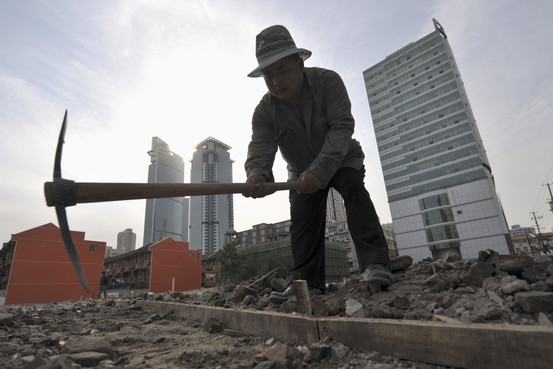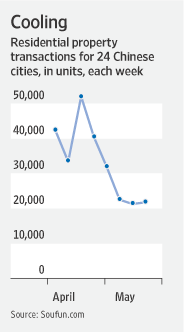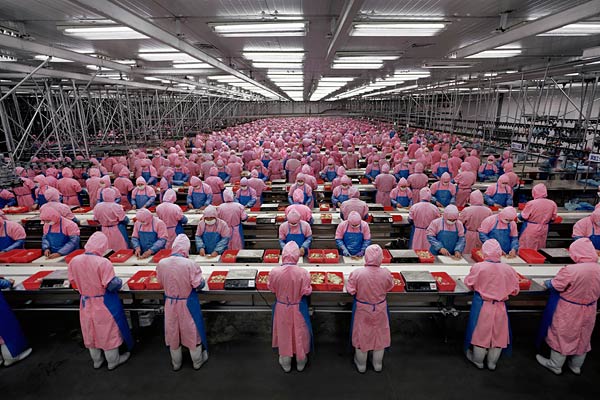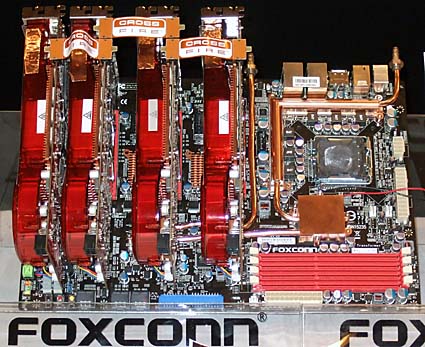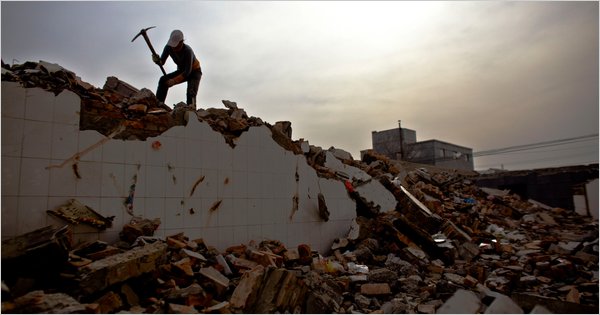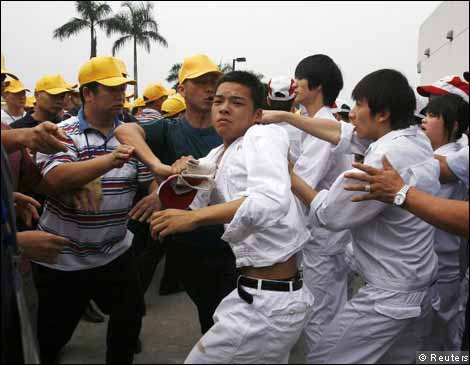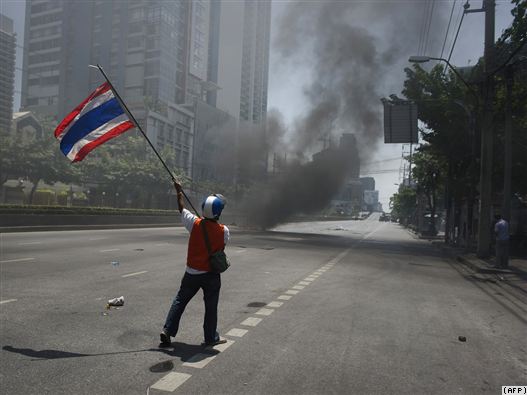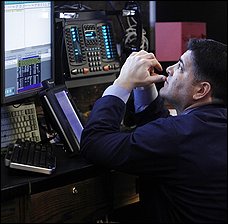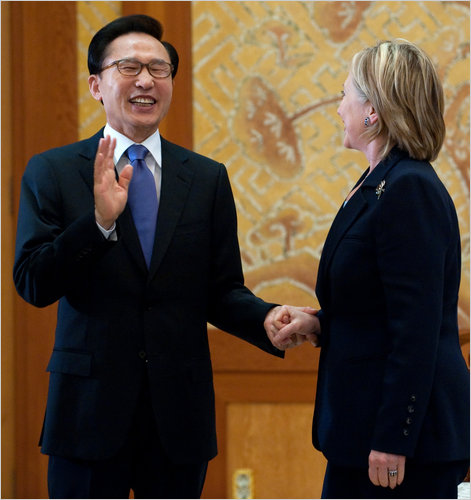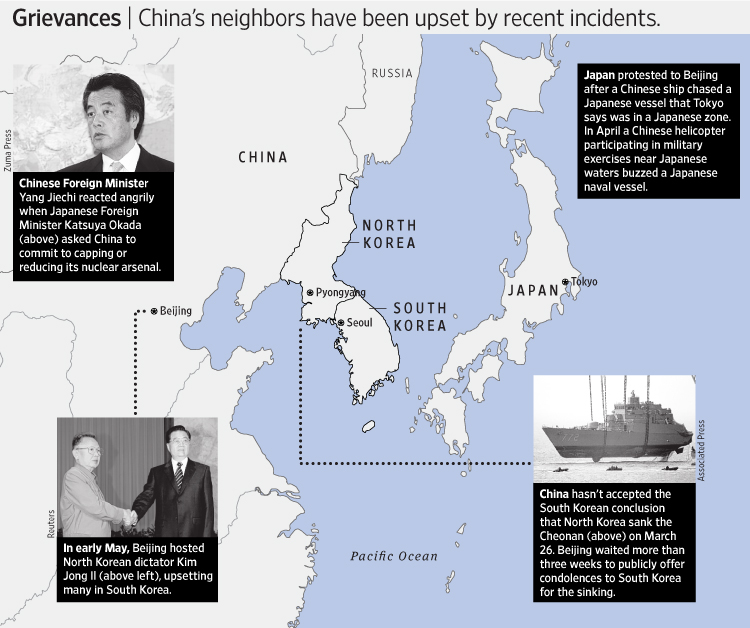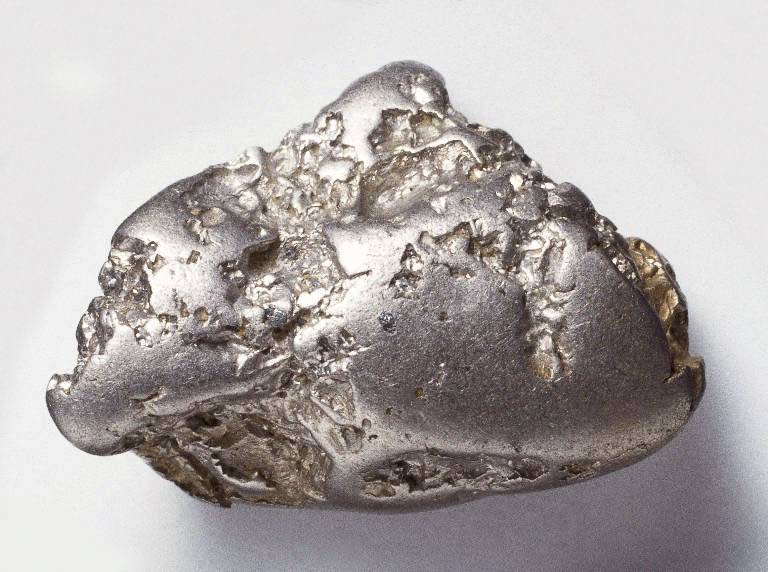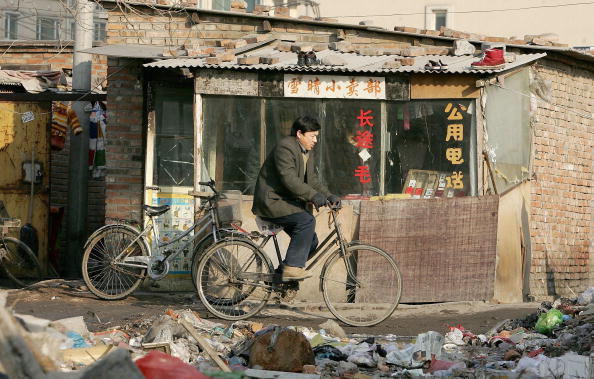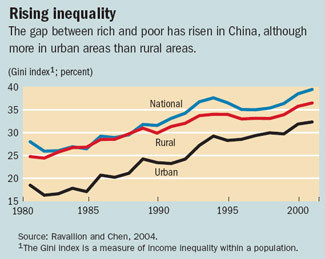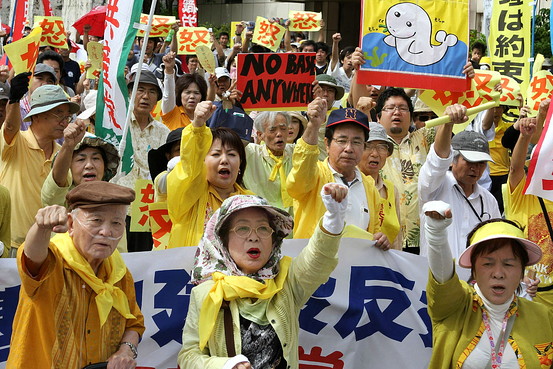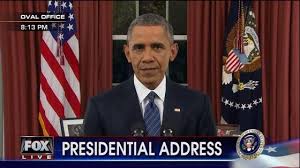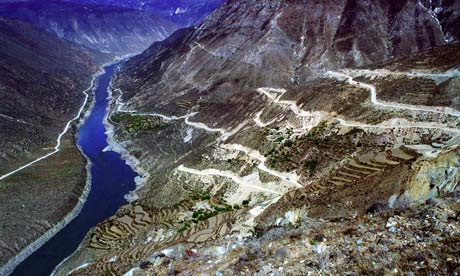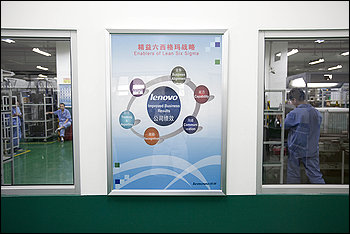 Usual excellent stuff from WAPO's John Pomfret.
Usual excellent stuff from WAPO's John Pomfret.
The lead:
Quick: Think of a Chinese brand name.
Japan has Sony. Mexico has Corona. Germany has BMW. South Korea? Samsung.
And China has . . . ?
If you're stumped, you're not alone. And for China, that is an enormous problem.
Last year, China overtook Germany to become the world's largest exporter, and this year it could surpass Japan as the world's No. 2 economy. But as China gains international heft, its lack of global brands threatens its dream of becoming a superpower.
No big marquee brands means China is stuck doing the global grunt work in factory cities while designers and engineers overseas reap the profits. Much of Apple's iPhone, for example, is made in China. But if a high-end version costs $750, China is lucky to hold on to $25. For a pair of Nikes, it's four pennies on the dollar.
"We've lost a bucketload of money to foreigners because they have brands and we don't," complained Fan Chunyong, the secretary general of the China Industrial Overseas Development and Planning Association. "Our clothes are Italian, French, German, so the profits are all leaving China. . . . We need to create brands, and fast."
The problem is exacerbated by China's lack of successful innovation and its reliance on stitching and welding together products that are imagined, invented and designed by others. A failure to innovate means China is trapped paying enormous amounts in patent royalties and licensing fees to foreigners who are.
China's government has responded in typically lavish fashion, launching a multibillion-dollar effort to create brands, encourage innovation and protect its market from foreign domination.
Through tax breaks and subsidies, China has embraced what it calls "a going-out strategy," backing firms seeking to buy foreign businesses, snap up natural resources or expand their footprint overseas.
Domestically, it has launched the "indigenous innovation" program to encourage its companies to manufacture high-tech goods by forcing foreign firms to hand over their trade secrets and patents if they want to sell their products there.
Since 2007, thousands of Chinese businessmen have attended government-sponsored seminars on "going out," learning everything from how to do battle with domineering Americans and Britons during conference calls to why a Chinese boss should think twice about publicly humiliating his wayward foreign workers -- as he'd do to his staff at home.
China has also moved to re-brand China itself. Late last year, when memories of China's poisoned pet food and deadly milk were still fresh, the Ministry of Commerce contracted with the global advertising giant DDB for a $300,000 ad showing a series of high-tech products, from top-of-the-line running shoes to an iPod.
As a guitar wails, a voice intones: "When it says 'Made in China,' what it really means is made in China, made with the world."
This is always the tough stretch that I think about when people start predicting China's inevitable domination of the global economy. Brands a lot more complex that most prognosticators imagine. I mean, just look at BP all of a sudden--from "beyond petroleum" to beyond pathetic. You can hire ad agencies to hawk your stuff, but that's just surface sheen. The real brand loyalty comes in the ability to offer compelling innovation, excellent services, and the like. That sort of capacity can't be ordered from above; it has to be nurtured from below. A bunch of guys sitting around a table in Beijing won't be able to pick winners consistently, and in their failures, legitimacy will be lost, grumbling will ensue, and that much more resources will be wasted on policing people and their dangerous thoughts instead of winning hearts and minds and brand loyalists through modeled behavior. Single-party states simply aren't cool, and they will never will be.
More excellent analysis:
In recent months, the Western media have hyperventilated with stories about China's going-out strategy and about Chinese firms buying up the globe -- Oil! Gas! Cars! -- and even investing in the United States. In 2000, China had $28 billion in overseas investments; this year, it could break $200 billion.
But a little perspective: Even if China's total foreign direct investment hits $200 billion, it still pales in comparison to smaller economies, such as Singapore's, Russia's and Brazil's. And China has plunked down only about $17 billion in rich countries, equivalent to the overseas assets of a single medium-ranked Fortune 500 company.
The 34 Chinese companies on the Fortune 500 list basically operate in China only. The world's three biggest banks are Chinese, but none is among the world's top 50, ranked by the extent of their geographical spread.
"Moving forward another 10 years," said Kenneth J. DeWoskin, chairman of Deloitte's China Research and Insight Center, "it's hard to see how viable Chinese companies will be if they just stay in China."
China's attempts to fight what it sees as the stranglehold of foreign patents and intellectual property rights have also had hiccups.
China is estimated to have paid foreign firms more than $100 billion in royalties to use mobile telephone technology developed in the West, according to executives of Western communications companies.
So in the late 1990s, it decided to develop its own. But after more than $30 billion in development costs, its unique technology still has fewer than 20 million users in a market of more than 500 million.
Handset makers have told China's government that they won't produce phones equipped with the new technology unless they are given subsidies. And China has resorted to giving away the technology to Romania and South Korea to encourage broader use.
"China is still stuck," said Joerg Wuttke, former president of the European Union Chamber of Commerce in China and a 25-year veteran of doing business in China. "There is a huge disconnect between the money spent in universities and the lack of products."
China also faces enormous challenges to creating globalized firms. Studies of Chinese executives show that they spend far more time with government officials -- who in China are the key to their profits -- than with customers, who are the key to international success.
"Chinese executives like me need to spend a generation outside China to learn how business is done around the world," said Hua Dongyi, who chairs a massive Chinese mining company in Australia but has also built roads in Algeria and infrastructure in Sudan.
Remember that line: Chinese execs spend far more time with their party bosses than focusing on customers.
In a nutshell, there's the Achilles heel of state capitalism.
And that's not a problem you can fix by throwing more $$$ at it.
Rest of the story is about how Lenovo's purchase of IBM computer production was a rare success.
As always, Pomfret captures reality in China--absent hype--better than anybody else.
 Friday, June 11, 2010 at 12:07AM
Friday, June 11, 2010 at 12:07AM 